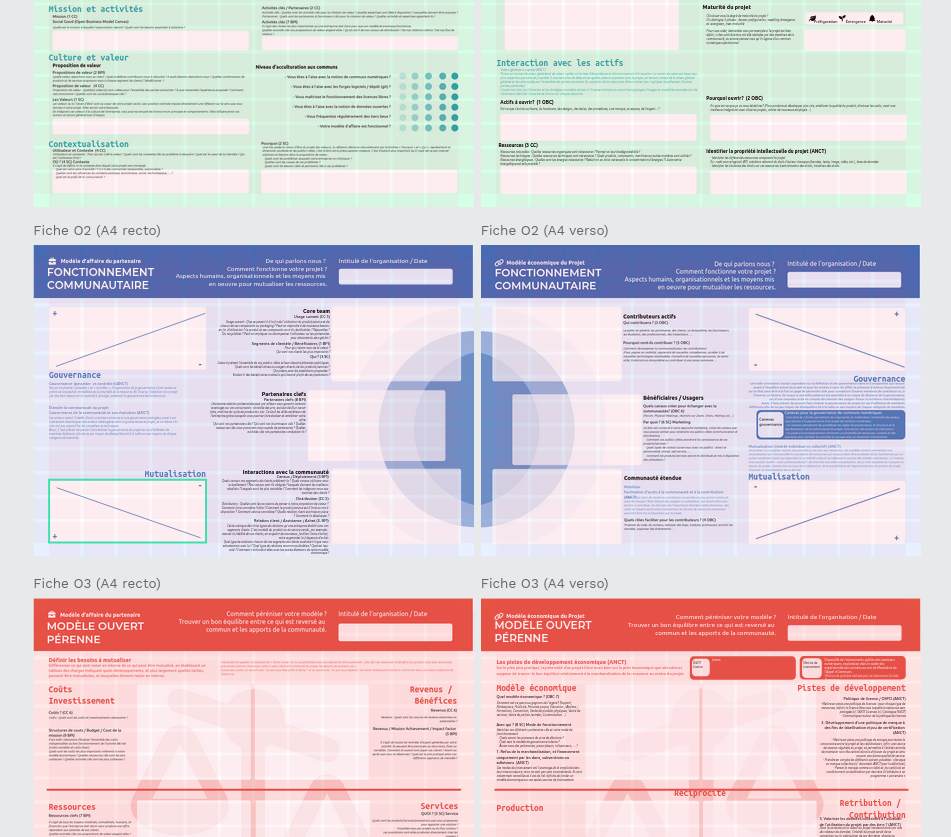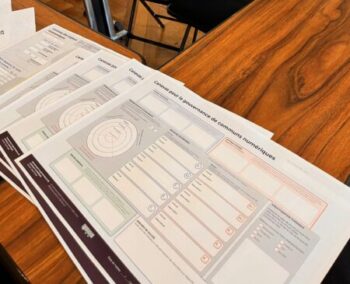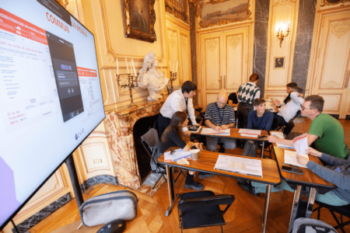
Commons model Canvas, a Business Model Canvas applied to the digital commons
Taking the economic dimension of the commons into account, both from the point of view of the sustainability of the community’s action and the sustainability of its members’ involvement, is still a complex issue. For everyone involved, it is a matter of reconciling the need to let go of control in order to ensure community ownership with the need to enhance value in a way that is tailored to the specific objectives of each partner.
In view of this, and following on from the Canvas for the governance of the digital commons (presented at NEC 2022 and since put into practice), we are initiating the design of a ‘Commons Model Canvas’. This canvas is likely to provide effective tools for commons holders in the economic dimension.
Launched in 2017 by the Programme Société Numérique of the French National Agency for Territorial Cohesion, the Laboratoire Société Numérique offers a critical look at the ethical and social challenges of digital, the legal issues of digital commons and public innovation, territorial development and digital inclusion.
It is therefore specifically interested in the issue of the digital commons and the role of the public sector in stimulating, structuring and developing them. To this end, the Programme Société Numérique has been working with inno³ for several years, to provide both theoretical and practical resources for public and private players in the digital commons.
Towards a canvas build in for the digital commons
The Business Model Canvas is a representation of how an organisation develops its business model.
The ‘Canvas for the economic challenges of the digital commons’ – for the moment simplified to the ‘Commons Model Canvas’ – aims to be a variant of this business matrix. Our aim is to take account of the specific features of the digital commons, and to integrate the issues of the multiple stakeholders who may be involved in the project.
To do this, we will be drawing on the expertise we have acquired in providing practical support for digital commons projects in terms of economic and business models. The resources produced as part of the Laboratoire Société Numérique and the projects supported as part of the support provided to local authorities by the Territorial Incubator will all be mobilised in this context.
Addressing the project and its ecosystem
The aim of the Canva Commons Model is twofold :
- On the one hand, it is to design a resource that can be used as a tool and activated directly by the creators of digital commons, with the aim of enabling them to identify the most appropriate economic model for their project, and the means of achieving it;
- And secondly, to make it easier for the project partners to project their related business model, i.e. the possibilities open to them for developing products and/or services based on the commons.
Call to contribute
In order to produce a resource that meets the needs of project promoters as closely as possible, a multi-stage methodology has been devised.
- State of the art. This involves bringing together and summarising the internal and external resources likely to contribute to the project.
- Prototyping. This will enable a first version of the framework to be designed, on the basis of which feedback will be gathered from project leaders.
- Iteration. In order to adapt the prototype of such a framework to the characteristics of the commons and the specific features of the economic system they embody, the collection of contributions will enable a series of iterative tests to be carried out.
So if you’re interested in the project, if you have questions, if you’d like to take part in the study groups that will be producing this feedback, or if you’d like to bring to our attention any project that could provide us with input, please write to us at commonsmodelcanvas@inno3.fr.
References
- Laboratoire Société Numérique website
- Numérique en Commun[s] website

